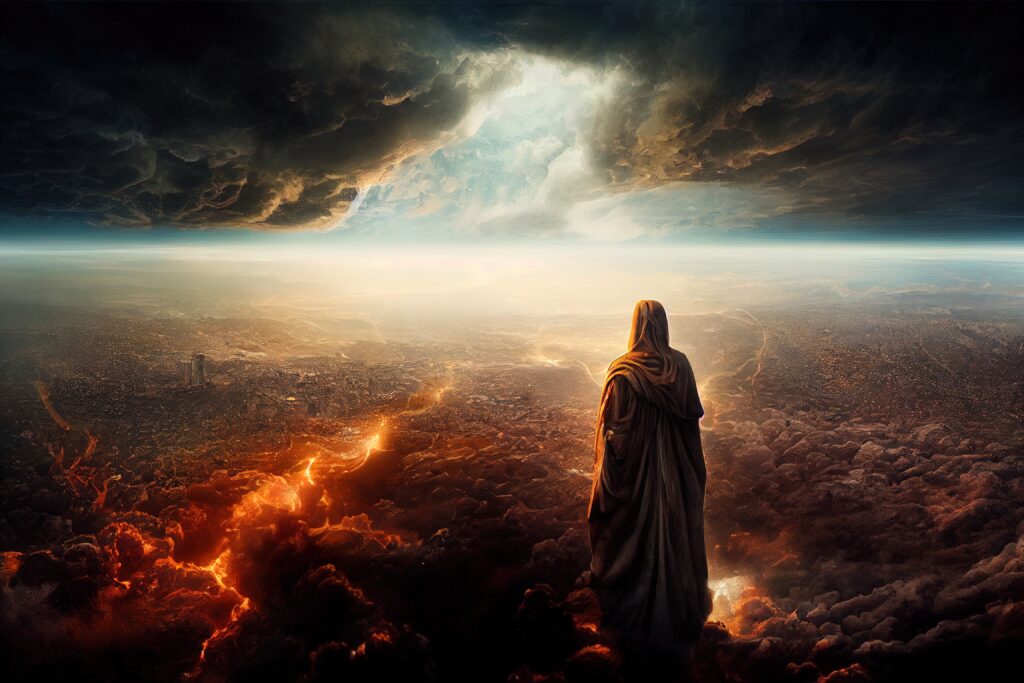
Those Who Oppose God.
“Then the angel filled the incense burner with fire from the altar and threw it down upon the earth; and thunder crashed, lightning flashed, and there was a terrible earthquake. Then the seven angels with the seven trumpets prepared to blow their mighty blasts.” – Rev 8:5-6. NLT
The purpose of the trumpets is clarified in connection with the fifth seal (Rev. 6:9–11). Reference to both the golden altar of incense and the altar of burnt offering, (items of furniture in the Hebrew sanctuary) as well as to the prayers of the saints in Revelation 8:3-4, connects the trumpets with the scene in Revelation 6:9, 10. The seven trumpets answer the prayers of God’s faithful for judgment on those who have persecuted them. This is a metaphor that can be compared to the blood of Abel “crying out from the ground” in Genesis 4:10. Therefore, the events portrayed in the trumpets likely fall on the opponents of God’s people throughout Christian history. Strange things have occurred and will occur in this world. The trumpets of Revelation don’t hide the premonition of disaster. But Revelation was not written to terrify us. Instead, it assures us that, no matter how bad things get, it will turn out all right in the end because Jesus is in control – of the world and our own personal destinies.
Revelation 8 has striking similarities to the account of the burnt offerings as performed in the Hebrew sanctuary service daily. The blowing of trumpets, the sacrifice of the Lamb, the casting down of the incense bowl. Even the space of silence.
Revelation 8 opens with a picture of seven angels standing before God, ready to blow their trumpets. Before the trumpets are blown, another scene is inserted. Its purpose is to explain the theological meaning of the trumpets. Jewish commentary on the Bible explains that at the evening sacrifice the lamb was placed upon the altar of burnt offering, and the blood was poured out at the base of the altar. An appointed priest took the golden censer inside the temple and offered incense on the golden altar in the Holy Place. When the priest came out, he threw the censer down on the pavement, producing a loud noise. (the censure was a bit like a frying pan.) At that point, seven priests blew their trumpets, marking the end of the temple services for that day. One can see how the language of the evening service is used in Revelation 8:3–6. It is significant that the angel receives incense at the “golden altar which was before the throne” (Rev. 8:3). The incense represents the prayers of God’s people (Rev. 5:8). Their prayers are now being answered by God. Revelation 8:3–6 provides important information regarding the trumpets in Revelation: Firstly, the seven trumpets are God’s judgments on rebellious humanity in response to the prayers of His oppressed people down through the ages. Secondly, the trumpets follow the death of Jesus as the Lamb and run consecutively throughout history until the Second Coming (as we shall see in Rev. 11:15–18). Revelation 8:5 should be compared to Ezekiel 10:2. In Ezekiel’s vision there is a hurling fire upon apostate Jerusalem.
The angel fills the censer with fire from the altar and hurls it down to the earth. Significantly, this fire comes from the very altar on which the prayers of the saints were offered.
The fact that the fire comes from that very altar shows that the seven trumpet judgments fall upon the inhabitants of the earth in answer to the prayers of God’s people and that God will intervene in their behalf in His appointed time. The throwing down of the censer also may be a warning that Christ’s intercession will not last forever. There will be a close of probationary time (see Rev. 22:11, 12).
